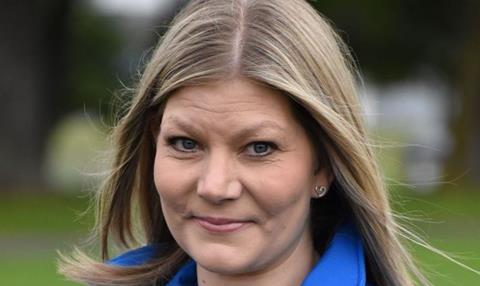Quality Meat Scotland (QMS) is celebrating the 30th anniversary of the Scottish red meat industry’s Quality Assurance Scheme. Established in 1990, it has been the longest-running scheme of its kind in the world.
The scheme aims to provide the industry and consumers with assurance that animals are reared to a stringent set of standards covering all aspects of animal welfare, food safety, traceability and the environment.

Today, the scheme boasts over 10,000 members across the red meat industry.
Kathryn Kerr, head of brands integrity at Quality Meat Scotland (QMS)l, said: “Scotland was the first in the world to introduce quality assurance schemes to underpin our standards of red meat production and we are very proud of what the industry has achieved.
“More than 90% of Scotland’s breeding cattle population, over 80% of the breeding sheep flock and almost 100% of significant pig farming businesses are currently covered by QMS quality assurance.
“It’s an incredible achievement for the Quality Assurance Schemes and QMS to celebrate 30 years of working with farmers, hauliers, markets, processors and feed merchants to deliver our ‘whole chain’ consumer assurance programme which underpins the integrity of our world-class Scotch Beef PGI, Scotch Lamb PGI and Specially Selected Pork brands.”
John Morison, who has been a quality assurance assessor for cattle and sheep farms for over 25 years, added that his first role was to speak at industry events to inform and explain to farmers the benefits of operating under the new framework.
“In the early days, there was resistance to the standards with farmers unsure of the benefits. I think it was fear of the unknown. When Quality Meat Scotland took over the scheme and started putting in place whole chain assurance, farmers started to see the benefits and willingly came on board.”
“Although it’s a voluntary scheme, and with Brexit in sight, it’s key to keep the assurance scheme going now more than ever to continue to promote Scotland’s world-class welfare, environmental and traceability credentials.”
Morison believes that the Quality Assurance Standards, which have not been dramatically changed in 30 years, is a testament to the success of the scheme.
“There have been small amendments here and there to the standards, but the reason that there haven’t been any dramatic changes to the standards in the 30 years is because they got it right from the start. Farmers were at the forefront of the decision-making process and as a result they are practical and attainable for any farm to achieve.
“Assessments are in place to help farmers and other members of Scotland’s red meat industry ensure we keep our world-class status. We aren’t there to trip farmers up or find faults, we’re there to ensure best practice and that the facilities and administration are kept to the standards they need to be.
“Over the years, and from speaking to farmers across Scotland, I feel that the assurance assessments have helped farmers in particular adapt to the increase demand of record and book keeping and eased the burden when inspected by other organisations as it is covered in their assurance documents.”
With Brexit looming, Morison notes that it is important to be part of a scheme with world-class status.
“Although it’s a voluntary scheme, and with Brexit in sight, it’s key to keep the assurance scheme going now more than ever to continue to promote Scotland’s world-class welfare, environmental and traceability credentials.”
This story was originally published on a previous version of the Meat Management website and so there may be some missing images and formatting issues.















